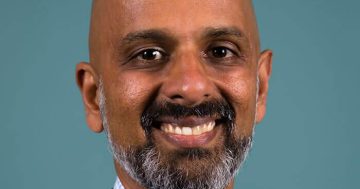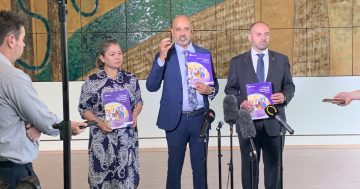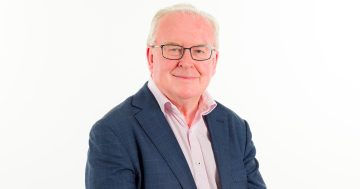
New Race Discrimination Commissioner Giridharan Sivaraman has been reading the room. Photo: Supplied.
On the political and public sector landscape, a few notable things have happened in the past few days.
Politics-wise, there was the Dunkley by-election in Victoria, which returned Labor but was marred by some particularly ugly and racist campaigning from some rather far right-wing players.
Saturday’s vote was preceded by a week of parliamentary attacks from Coalition MPs keen to link asylum seekers with words like “foreign criminals” and “scared community” and “Labor”.
And the tactics weren’t confined to Question Time.
Deputy Liberal leader Sussan Ley went so far as to Tweet a message urging Dunkley’s constituents to vote against Labor “If you do not want to see Australian women being assaulted by foreign criminals”.
She must be so proud of herself.
It was all pretty low stuff from the far right, but it didn’t work. Labor had a convincing win.
Which brings us to yesterday (4 March). That was the day Australia’s new Race Discrimination Commissioner, Giridharan Sivaraman, started work.
Commissioner Sivaraman made a point on his first day of stressing that his immediate priority will be to progress a national anti-racism framework to “help guide Australia’s collective efforts” to comprehensively combat racism.
He vowed to work collaboratively with government, community groups, stakeholders and the wider society to promote and protect the equal rights of people from First Nations communities and migrant, refugee or faith-based backgrounds who are negatively racialised.
The new Commissioner has obviously been reading the room.
Born in India and migrating to Australia as a child, Mr Sivaraman has himself been the subject of racism in this country.
His anti-discrimination legal and advocacy work is based on a strong passion for human rights.
He promises to speak truth to power and fight for the rights of the marginalised, oppressed and vilified.
“Australia urgently needs a national, coordinated approach to anti-racism that must be legally adhered to and empowers people to take meaningful action,” the Commissioner said.
“I will listen to communities across the country to understand their concerns and proposed solutions. My priority is to ensure people feel comfortable to speak to me. I am here to listen, to bear witness to the lived experiences of communities, and then see if and how we can take action.”
Perhaps the most poignant comment on his first day as Race Discrimination Commissioner was this line: “We need to be honest about the existence of racism in our society and the structural and systemic barriers people face in daily life.
“This includes in employment opportunities and in the spheres of politics and public policy. It is our collective responsibility to dismantle racism in all its forms.”
From his introductory message, it would appear that the Commissioner was not just addressing the Australian community in general but was also being quite direct about the state of the nation’s politics.
Before this new role, Mr Sivaraman was the principal lawyer with Maurice Blackburn, leading the firm’s Queensland Employment Law department. He also held the position of Chair of Multicultural Australia from 2021-2024 and was a member of the Queensland Multicultural Advisory Council from 2019-2024, where he advocated for the rights of victims of racial vilification.
He knows racism when he sees it and he knows what’s needed to counter it – it is political will.
There is a growing political will for exactly the opposite right now in Australia and it is alarming to watch.
“The subject of racism is always a sensitive one, and in recent times, it has seemed to become even more so,” the Commissioner said.
“From the fallout surrounding the Voice referendum to reports of rising racism, there is currently a concerning level of vitriol and division in Australia.
“I personally have experienced racism first-hand. It is a source of pain that no one should ever have to endure. But this can only be addressed if we come together with respect front of mind.”
We are expecting big things from Australia’s new Race Discrimination Commissioner.
He’s not a politician, so he and his team might actually make some progress in this area.
Original Article published by Chris Johnson on Riotact.







